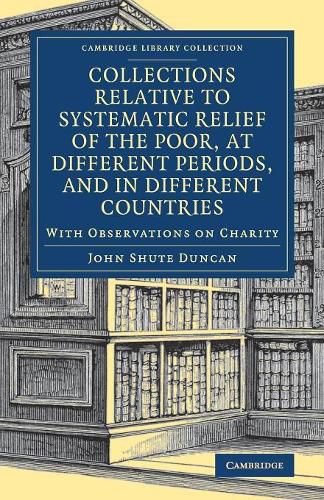Readings Newsletter
Become a Readings Member to make your shopping experience even easier.
Sign in or sign up for free!
You’re not far away from qualifying for FREE standard shipping within Australia
You’ve qualified for FREE standard shipping within Australia
The cart is loading…






John Shute Duncan (1769-1844), keeper of the Ashmolean Museum in Oxford from 1823 to 1829, instituted a major reorganisation, and also donated his own library to the museum as the nucleus of a reference department. In addition to his writings on natural history, in 1815, he published (anonymously) this pamphlet, benevolence to the poor being one manifestation of his strong religious belief. In it, Duncan argues that in all nations from the ancient Hebrews to the Chinese, and from the Greeks and Romans to the peoples of modern Europe, either religious or ethical impulses have directed that charity should be offered to the poor. He describes (from written sources) the state of provision for beggars and the sick in Italy, Germany, France, Russia and Iceland, before turning to Britain, and concluding that, rather than seek government action, all people in comfortable circumstances should aid the ‘worthy’ poor via existing charitable establishments.
$9.00 standard shipping within Australia
FREE standard shipping within Australia for orders over $100.00
Express & International shipping calculated at checkout
John Shute Duncan (1769-1844), keeper of the Ashmolean Museum in Oxford from 1823 to 1829, instituted a major reorganisation, and also donated his own library to the museum as the nucleus of a reference department. In addition to his writings on natural history, in 1815, he published (anonymously) this pamphlet, benevolence to the poor being one manifestation of his strong religious belief. In it, Duncan argues that in all nations from the ancient Hebrews to the Chinese, and from the Greeks and Romans to the peoples of modern Europe, either religious or ethical impulses have directed that charity should be offered to the poor. He describes (from written sources) the state of provision for beggars and the sick in Italy, Germany, France, Russia and Iceland, before turning to Britain, and concluding that, rather than seek government action, all people in comfortable circumstances should aid the ‘worthy’ poor via existing charitable establishments.